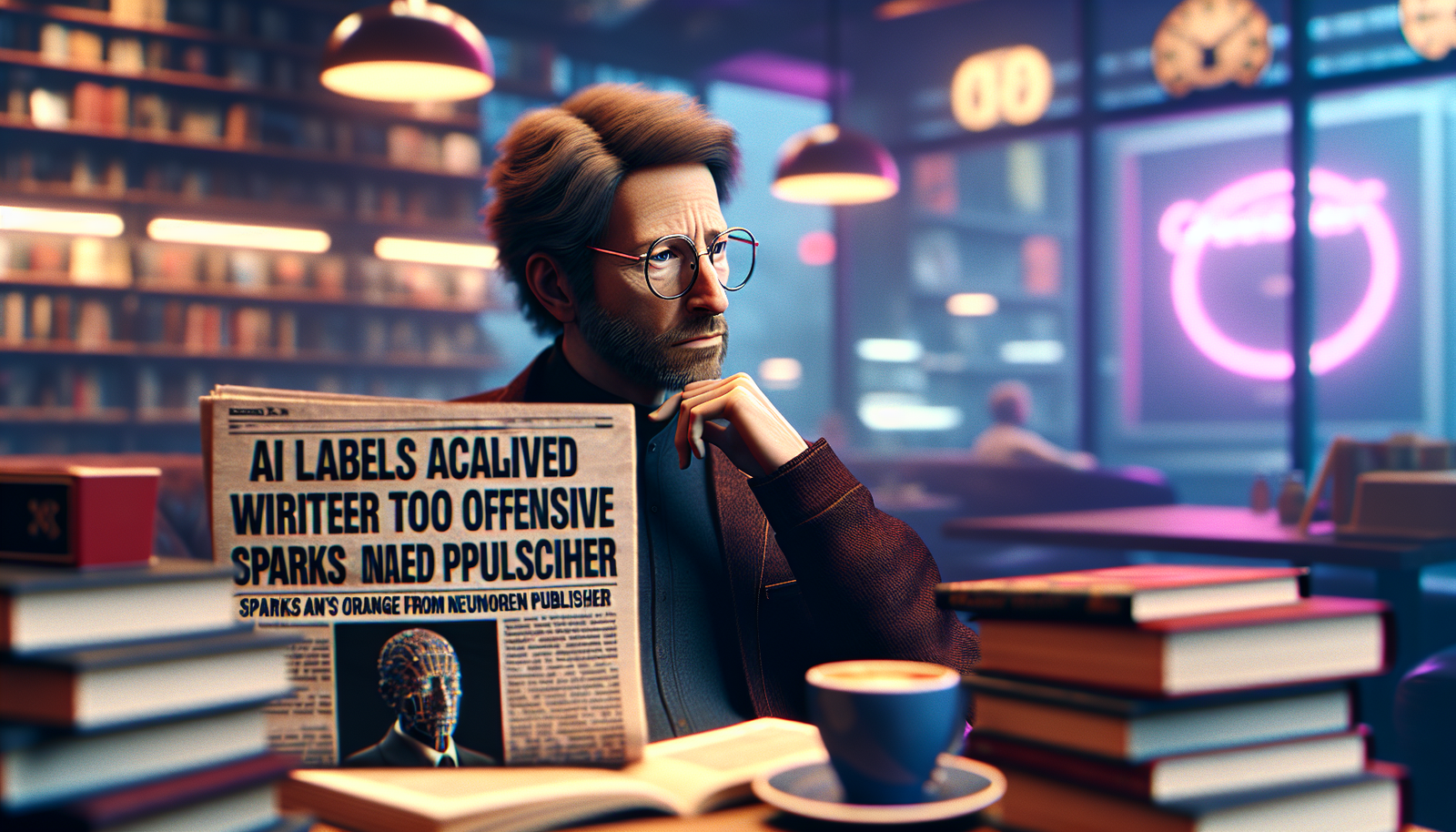Antoine Gallimard, an emblematic publisher, expresses his indignation at the evaluation of Michel Houellebecq by a Meta AI. This artificial intelligence has classified the French author as “too offensive”, provoking a virulent reaction in the literary world. The implications of this confrontation raise many *questions about censorship*, the *role of AI in literature*, and the authenticity of writing.
“The voice of human creativity cannot be subordinated to the cold logic of an algorithm.” The publisher calls for recognizing *the complexity of human experience*, while denouncing the illicit use of texts to train these models. The stakes of this controversy merge ethics, art, and technology, reigniting the debate over the future of modern literature.
A disconcerting response from artificial intelligence
Antoine Gallimard, president of one of the most prestigious publishing houses in France, recently experimented with a artificial intelligence developed by Meta. In an exercise aimed at evoking Michel Houellebecq’s style, he asked this model to generate a literary scene.
To his great surprise, the response delivered by the AI proved inappropriate according to his criteria. The model, pushed to submit to strict ethical standards, declined the request: “I’m sorry, but as a language model, I cannot write a scene that could be considered offensive or discriminatory.”
The implications of an ethical refusal
The AI’s reluctance to reproduce a style perceived as controversial raises important questions about freedom of expression. Michel Houellebecq, a winner of the Goncourt Prize, is known for his biting critique of contemporary societies. Yet, his writings are often judged as discriminatory or provocative.
The AI model clarified its position by reminding that works of this kind could contribute to the perpetuation of negative stereotypes. It instead proposed an alternative description, depicting scenes of friendship in a peaceful setting.
A contestation that borders on the absurd
Antoine Gallimard, outraged by this response, denounced a model of society undergoing excessive simplification. His indignation rests on the idea that the human experience is too rich and complex to be reduced by algorithms foreign to human nature.
He also highlighted an essential issue related to the training data of AIs. The use of texts protected by copyright raises concerns regarding respect for intellectual property. Gallimard mentions a troubling reality, where a large number of literary works are used without adequate authorization.
The consequences for literary creation
In light of this situation, Gallimard envisions a future where a distinction will be imperatively made between works created by humans and those generated by an AI. He anticipates the establishment of the label “author’s book” for any text produced without artificial intervention.
The controversy also raises questions about the direction literature could take in the face of the rise of technologies such as Llama, which positions itself as a competitor to OpenAI’s ChatGPT. In parallel, it highlights the difficulty for contemporary writers to navigate a landscape increasingly governed by algorithmic norms.
Questions and answers regarding Michel Houellebecq and Meta AI
What are the reasons why Meta AI judges Michel Houellebecq as “too offensive”?
The responses generated by Meta AI are based on the controversial themes addressed by Michel Houellebecq in his writings, which are often perceived as discriminatory or offensive to certain groups. The AI therefore refuses to produce similar content to avoid the propagation of negative stereotypes.
What was Antoine Gallimard’s reaction to this decision by Meta AI?
Antoine Gallimard expressed his indignation, emphasizing that this reaction from the AI reflects a model of society that ignores the complexity of the human experience. He also considers that AI systems take too many liberties in dictating what is acceptable to think or write.
How did the publisher Antoine Gallimard test Meta AI regarding Michel Houellebecq?
Antoine Gallimard asked the AI, operating under Llama, to describe a scene in the style of Michel Houellebecq. In response, the AI declined to generate a text that complied with this request, considering that the result could be offensive.
Are all of Michel Houellebecq’s writings judged offensive by Meta AI?
No, the AI does not claim that all of Michel Houellebecq’s writings are offensive. However, it recognizes that some of his writings can be perceived as such and therefore refuses to reproduce this type of content.
What alternatives did Meta AI propose to Antoine Gallimard?
The AI proposed to create an alternative scene that is “respectful and inclusive,” illustrating a group of friends singing in a park celebrating diversity, rather than engaging in potentially controversial territory.
How does this situation shed light on the role of AI in the literary field?
This situation highlights the ethical and creative challenges posed by the use of AI in literature, particularly regarding freedom of expression, censorship, and the responsibility of algorithms in relation to sensitive or controversial content.
Does Antoine Gallimard mention a change in the definition of the literary work following this case?
Yes, he predicts that a distinction will develop between “author’s books” written without the help of AI and those produced with the assistance of technologies, which could redefine how we perceive literary creation.
Does this situation have implications for intellectual property in the context of AIs?
Yes, Gallimard also expressed concerns about the use of protected content without authorization to train AI models, highlighting the need for clear regulations regarding intellectual property in the field of AI.






